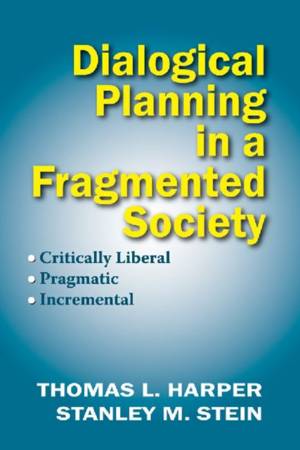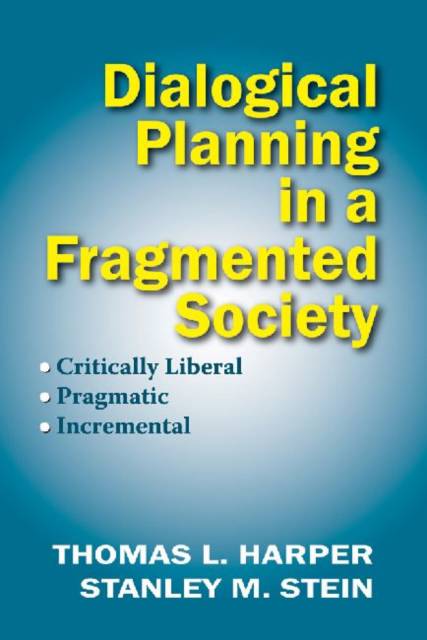
- Afhalen na 1 uur in een winkel met voorraad
- Gratis thuislevering in België vanaf € 30
- Ruim aanbod met 7 miljoen producten
- Afhalen na 1 uur in een winkel met voorraad
- Gratis thuislevering in België vanaf € 30
- Ruim aanbod met 7 miljoen producten
Zoeken
Dialogical Planning in a Fragmented Society
Critically Liberal, Pragmatic, Incremental
Thomas L Harper, Stanley Stein
Paperback | Engels
€ 49,95
+ 99 punten
Uitvoering
Omschrijving
The culmination of a critical study of neo-pragmatism philosophy and its application to planning, Dialogical Planning in a Fragmented Society begins with philosopher Stanley M. Stein's examination of neo-pragmatism and his thoughts on how it can be useful in the field of environmental design-specifically, how it can be applied to planning procedures and problems. Neo-pragmatism is an approach that has been, in the past, best expressed or implied in the writing of Hilary Putnam, Richard Rorty, and, in particular, Donald Davidson, John Rawls, and Ludwig Wittgenstein. Thomas L. Harper furthers this tradition by providing the context for this theoretical application from his academic background in economics and management as well as his practical experience with political decision-making processes, community planning, and economic development. The result is a fresh synthesis of ideas-a new approach to thinking about planning theory and its implications for, and relationship with, practice. Philosopher Michael Walzer has asserted that "philosophy reflects and articulates the political culture of its time, and politics presents and enacts the arguments of philosophy." Similarly, the authors view planning theory as planning reflected upon in tranquility, away from the tumult of battle, and planning practice as planning theory acted out in the confusion of the trenches. Each changes the other in a dynamic way, and the authors demonstrate the intimate and inextricable link between them.
Specificaties
Betrokkenen
- Auteur(s):
- Uitgeverij:
Inhoud
- Aantal bladzijden:
- 374
- Taal:
- Engels
Eigenschappen
- Productcode (EAN):
- 9780882851792
- Verschijningsdatum:
- 15/10/2005
- Uitvoering:
- Paperback
- Formaat:
- Trade paperback (VS)
- Afmetingen:
- 152 mm x 229 mm
- Gewicht:
- 612 g

Alleen bij Standaard Boekhandel
+ 99 punten op je klantenkaart van Standaard Boekhandel
Beoordelingen
We publiceren alleen reviews die voldoen aan de voorwaarden voor reviews. Bekijk onze voorwaarden voor reviews.











